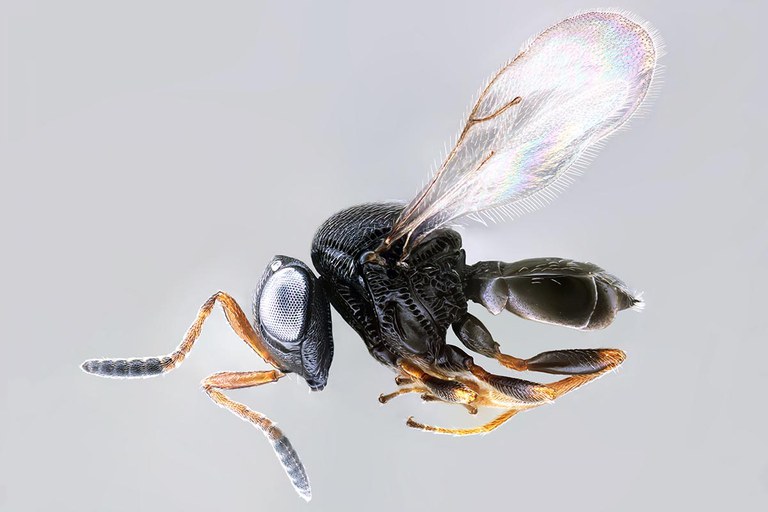Using native parasitic samurai wasps to biologically control stink bugs
Problem
How can the brown marmorated stink bug (BMSB) be controlled without using synthetic pesticides?
- BMSB threatens fruits, vegetables, and ornamentals, causing millions of dollars' worth of damage.
- Synthetic pesticides hurt beneficial insects and cause outbreaks of secondary pests.
Findings
Researchers found that the samurai wasp, a native parasitic insect, keeps BMSB in check by developing inside the stink bug's eggs. The BMSB can also be attracted to “ghost traps" baited with an aggregation pheromone.
Impact
The complementary, two-pronged approach allows some control of BMSB without pesticide applications to crops, thus also indirectly supporting the establishment of samurai wasps in and around orchards.
Related Research Areas: Advanced Agricultural and Food Systems, Environmental Resilience
Research Credit
Team
- Grzegorz Krawczyk, Hillary Peterson, Jayson Harper, Shelby Fleischer, and Claire Hirt
Participating Departments
Competitive Funding
- USDA Agricultural Research Service; USDA NIFA Specialty Crop Research Initiative; State Horticultural Association of Pennsylvania
Federal and State Appropriations
- Project PEN04619 and USDA NIFA Accession #1011647
Emerging Discoveries
Wasp warriors: Entomologists on samurai mission to slay stink bugs
Office for Research and Graduate Education
Address
217 Agricultural Administration BuildingUniversity Park, PA 16802-2600
- Email agresearch@psu.edu
- Office 814-865-3136
Office for Research and Graduate Education
Address
217 Agricultural Administration BuildingUniversity Park, PA 16802-2600
- Email agresearch@psu.edu
- Office 814-865-3136


